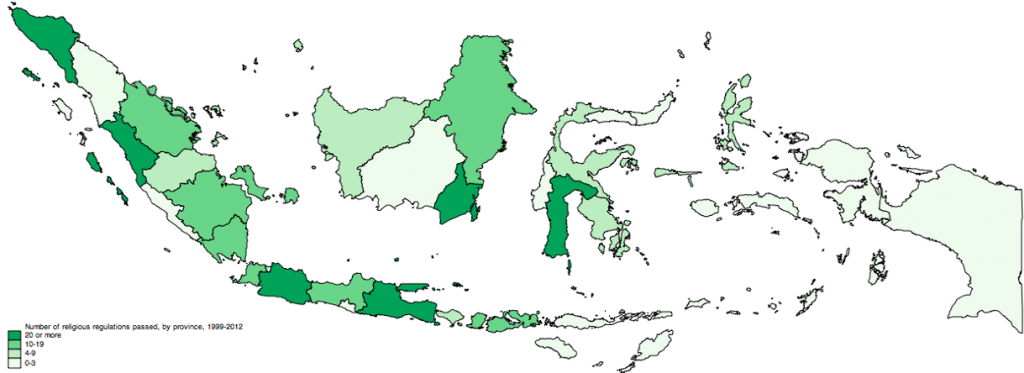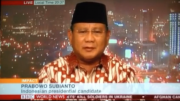Indonesia turns 71 today. Like many septuagenarians, the country appears to be growing more grumpy and intolerant as it ages. This week, the Economist picks up on an apparently rising tide of homophobia in Indonesia. Importantly, the paper also picked up on the fact that the grumpiness is partly motivated by politics: “Politics, as much as religious conviction, plays its part,” The Economist reports. “Many politicians sense they may win more votes by presenting themselves as pious Muslims than by defending sexual minorities from persecution.”
In fact, I’d say it is a lot MORE about politics than about religious conviction. I’ve written about this before, referring to an analysis of local laws I was working on together with political scientist Michael Buehler. The first part of that work is now finally published, in a paper that looks at the cynical ways in which Indonesian politicians use religious regulations to appeal to different key groups at different points in the electoral cycle. (Link is to pdf)
The paper is a bit pompous — academia, eh? — but it shows that at least until 2012, sharia-type laws mapped onto both political history and on to the electoral cycle in very predictable ways. From the map above, you can see that the passage of laws with an Islamic inspiration are concentrated in areas where political Islam has been embedded for over a century. And from the paper you’ll see that “pious Moslem” laws are mostly passed in campaigning periods, unpopular zakat laws imposing taxes are mostly passed during a second term when a bupati/walikota can’t run again, and laws which confer extraordinary patronage opportunities on influential groups are passed more or less across the board.
On the day I write this, Indonesia turns 71 and my family celebrates the 80th birthday of both of my parents. The good news is that my parents are both getting much more liberal politically as they age. I hope Indonesia will, like them, grow wiser rather than grumpier as she matures.





